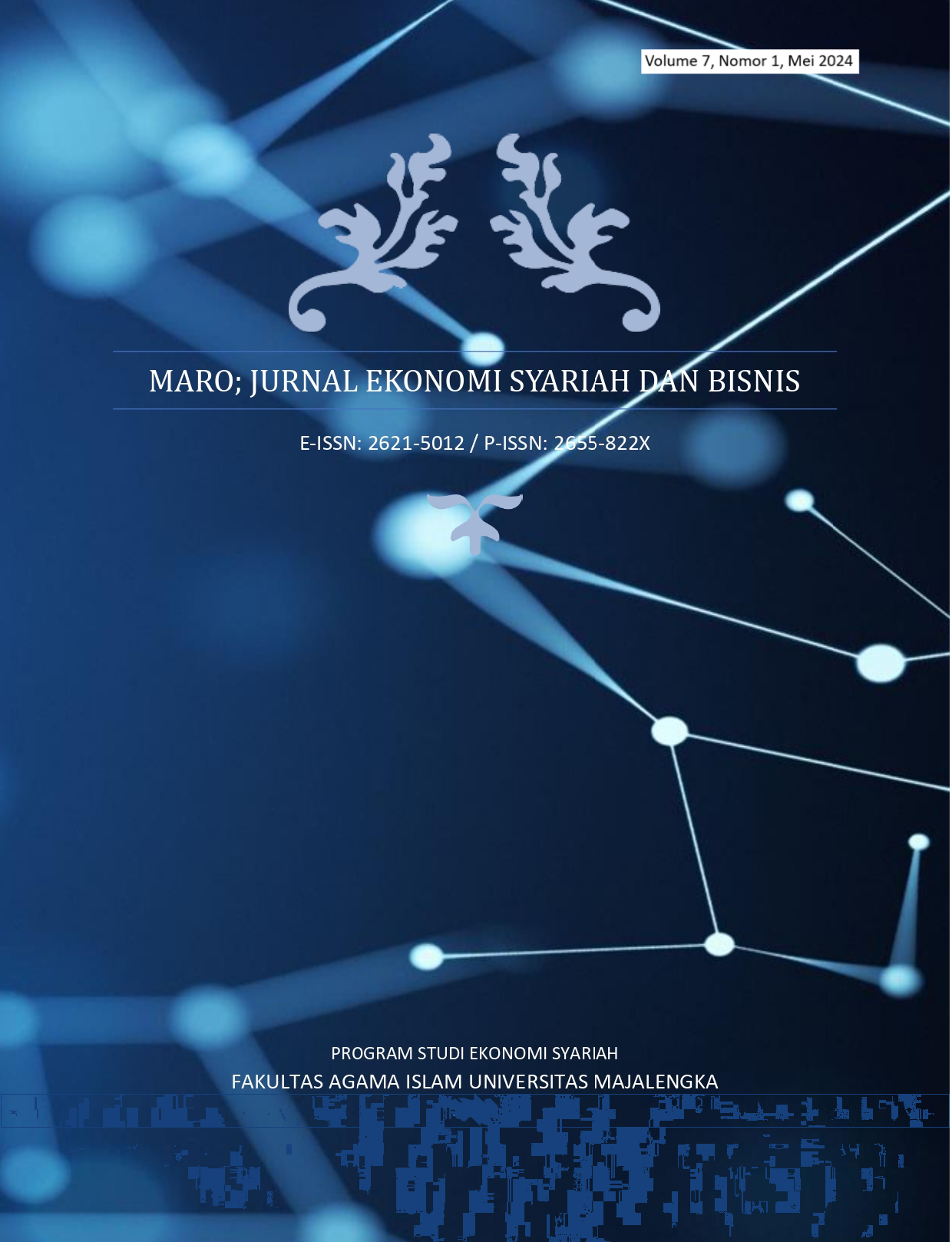Islamic Economics in the View of Ibnu Taimiyah
DOI:
https://doi.org/10.31949/maro.v7i1.6031Abstract
This article's purpose is to further review Ibn Taimiyah's Islamic economic thought. This type of research is descriptive qualitative using a library research approach that describes primary and secondary references. The primary data source in this study is taken from the views of Muslim scholars, especially Ibn Taimiyah in his work on Islamic economics. The analytical method commonly used by other qualitative research adopts the Milles and Hubberman model which consists of grouping data, compiling, and drawing conclusions. In general, Ibn Taimiyah's Islamic economic thinking appreciates the importance of prices that occur because of the free market mechanism. He rejects any interference to suppress or fix prices thereby disrupting the free mechanism, except under certain conditions, such as monopoly, collusion, and rebellion which causes the distribution of goods to be not smooth, he allows the government to intervene in prices so that price stability is re-established.
















